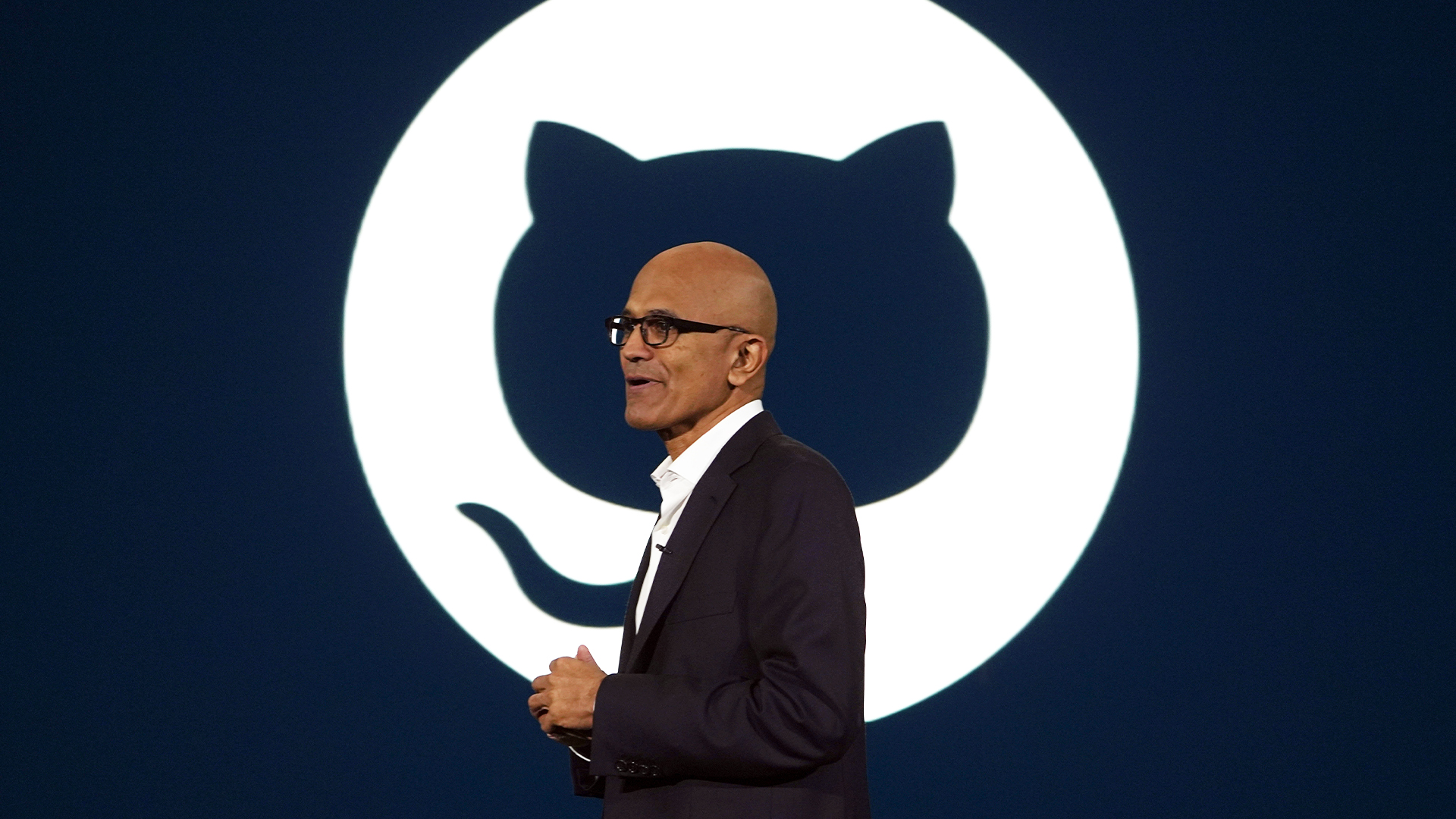AI coding really isn't living up to expectations – "the savings have been unremarkable" but not for the reason you might think
Companies are focusing too heavily on simple AI coding tasks, and not overhauling wider business processes


Sign up today and you will receive a free copy of our Future Focus 2025 report - the leading guidance on AI, cybersecurity and other IT challenges as per 700+ senior executives
You are now subscribed
Your newsletter sign-up was successful
The benefits of AI coding have been “unremarkable” so far, according to new research, with developers struggling to unlock clear-cut gains from the technology.
That's the assessment from Bain & Company after analyzing how generative AI has impacted software development – and the lack of big payoffs from implementing the technology to date.
The report found that AI coding assistants may be able to take on 40% of a developer's work, including bug fixing, maintenance, code development, review and validation.
However, that hasn't led to a serious transformation in terms of broader operational efficiency.
"Software coding was one of the first areas to deploy generative AI, but the savings have been unremarkable," the consultancy said.
One reason for that is that coding itself makes up less than 40% of a software engineer's work day, limiting the impact of generative AI if they're unable to speed up in other aspects of their role.
Bain added that two-in-three software firms have rolled out generative AI tools, but developer adoption remains low. Those that are using AI assistants are reporting up to 15% increases in productivity, but that time isn't being used in higher-value work.
Sign up today and you will receive a free copy of our Future Focus 2025 report - the leading guidance on AI, cybersecurity and other IT challenges as per 700+ senior executives
"So even those modest gains don’t translate into positive returns," the consultancy added.
The Bain report fits with previous research that showed coding tools may actually slow down software engineers, in part because they had to clean up much of the code generated by AI.
Similar research from Atlassian also pointed to an "unexpected paradox" in AI software development. Developers were found to save around 10 hours a week using these tools, but "organizational inefficiencies" were hampering broader productivity gains.
How to win with AI coding
Bain argues that more AI is the answer. The study noted that companies seeing the most gains are applying AI across the software lifecycle and beyond simple coding use-cases.
"If AI speeds up coding, then code review, integration, and release must speed up as well to avoid bottlenecks," the company says, noting that Netflix has successfully "shifted left" to ensure AI code isn't held back by other parts of the process.
The best way to boost returns on AI investment was to redesign processes to use the technology more efficiently, Bain insisted, as well as taking advantage of time saved with AI coding to higher-value work.
"Leading adopters treat generative AI as a fundamental transformation of their software development life cycle rather than a one-off project," the report noted.
"They take a future-back approach to rearchitect their end-to-end software development life cycle around generative AI, embedding it deeply into workflows and scaling it enterprise-wide. They weave it into development workflows and scale it across use cases."
That should all become easier with the rise of agentic AI, the company said, as agents will be able to better manage multiple stages of development.
Leaders find success with AI
Despite that, Bain still advised that the use of generative AI across wider processes, rather than just with coding, was boosting income for those who have led in deployments.
Some companies are delivering gains of between 10% to 25% by scaling the technology across core workflows, the company added.
"If you’re still piloting, you’re dangerously behind," noted David Crawford, Chairman of Bain’s Global Technology, Media, and Telecommunications practice, in the report.
For those companies that are struggling to keep up, Bain advised moving out of "experimental mode" by following the lead of companies that have already found success, as "they established a repeatable playbook that others can now follow – grounded in robust methodology, analytic tools, and clear benchmarks.
Make sure to follow ITPro on Google News to keep tabs on all our latest news, analysis, and reviews.
MORE FROM ITPRO
- Big tech promised developers productivity gains with AI tools – now they’re being rendered obsolete
- AI in software engineering: Six ways the profession is changing
- Microsoft says AI is finally having a 'meaningful impact' on developer productivity
Freelance journalist Nicole Kobie first started writing for ITPro in 2007, with bylines in New Scientist, Wired, PC Pro and many more.
Nicole the author of a book about the history of technology, The Long History of the Future.
-
 AI-generated code is fast becoming the biggest enterprise security risk as teams struggle with the ‘illusion of correctness’
AI-generated code is fast becoming the biggest enterprise security risk as teams struggle with the ‘illusion of correctness’News Security teams are scrambling to catch AI-generated flaws that appear correct before disaster strikes
-
 ‘Not a shortcut to competence’: Anthropic researchers say AI tools are improving developer productivity – but the technology could ‘inhibit skills formation’
‘Not a shortcut to competence’: Anthropic researchers say AI tools are improving developer productivity – but the technology could ‘inhibit skills formation’News A research paper from Anthropic suggests we need to be careful deploying AI to avoid losing critical skills
-
 A torrent of AI slop submissions forced an open source project to scrap its bug bounty program – maintainer claims they’re removing the “incentive for people to submit crap”
A torrent of AI slop submissions forced an open source project to scrap its bug bounty program – maintainer claims they’re removing the “incentive for people to submit crap”News Curl isn’t the only open source project inundated with AI slop submissions
-
 ‘This is a platform shift’: Jensen Huang says the traditional computing stack will never look the same because of AI – ChatGPT and Claude will forge a new generation of applications
‘This is a platform shift’: Jensen Huang says the traditional computing stack will never look the same because of AI – ChatGPT and Claude will forge a new generation of applicationsNews The Nvidia chief says new applications will be built “on top of ChatGPT” as the technology redefines software
-
 So much for ‘trust but verify’: Nearly half of software developers don’t check AI-generated code – and 38% say it's because it takes longer than reviewing code produced by colleagues
So much for ‘trust but verify’: Nearly half of software developers don’t check AI-generated code – and 38% say it's because it takes longer than reviewing code produced by colleaguesNews A concerning number of developers are failing to check AI-generated code, exposing enterprises to huge security threats
-
 Microsoft is shaking up GitHub in preparation for a battle with AI coding rivals
Microsoft is shaking up GitHub in preparation for a battle with AI coding rivalsNews The tech giant is bracing itself for a looming battle in the AI coding space
-
 AI could truly transform software development in 2026 – but developer teams still face big challenges with adoption, security, and productivity
AI could truly transform software development in 2026 – but developer teams still face big challenges with adoption, security, and productivityAnalysis AI adoption is expected to continue transforming software development processes, but there are big challenges ahead
-
 ‘1 engineer, 1 month, 1 million lines of code’: Microsoft wants to replace C and C++ code with Rust by 2030 – but a senior engineer insists the company has no plans on using AI to rewrite Windows source code
‘1 engineer, 1 month, 1 million lines of code’: Microsoft wants to replace C and C++ code with Rust by 2030 – but a senior engineer insists the company has no plans on using AI to rewrite Windows source codeNews Windows won’t be rewritten in Rust using AI, according to a senior Microsoft engineer, but the company still has bold plans for embracing the popular programming language


